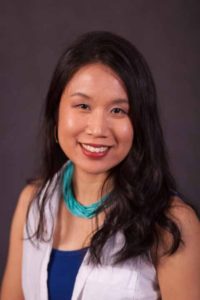By Jennifer Ju
Facing Ourselves

Jennifer Ju
Women’s History Month began as a week-long celebration organized by an education task force in Santa Rosa, California 45 years ago to coincide with International Women’s Day on March 8. Women’s History Week was quickly adopted by other communities in the following years, resulting in women’s groups lobbying for national recognition.
In 1980, National Women’s History Week was established by President Jimmy Carter. In his first presidential proclamation, Carter wrote, “From the first settlers who came to our shores, from the first American Indian families who befriended them, men and women have worked together to build this nation. Too often, the women were unsung and sometimes their contributions went unnoticed. But the achievement, leadership, courage, strength and love of the women who built America was as vital as that of the men whose names we know so well.”
How well do we know the names of the women who built America? Often, the American history taught in classrooms focuses heavily on the contribution of “men whose names we know so well.”
How many of us are familiar with Sybil Ludington, a 16-year old girl who, despite being less than half Paul Revere’s age, rode more than twice the distance that Revere traveled to provide warning of the impending attack of British troops on Danbury, Connecticut in April 1777?
How many are aware of the legacy of Sojourner Truth? Truth made an indelible impact in early American history through her work as a passionate activist for women’s rights. Having escaped a life of slavery with her infant daughter, Truth also fought for emancipation and spoke out against racism and segregation.
Who is aware of the contributions of Jane Addams? Dubbed the “mother of social work” and a Nobel Peace Prize winner, Addams’s work included pushing for a myriad of legislation, ranging from abolishing child labor to promoting labor unions to advocating for compulsory school attendance to fighting for safer working conditions. She also founded the Women’s International League for Peace and Freedom.
How many have heard of Hedy Lamar? Not only was she a popular actress often praised for her beauty, Lamar was an inventor who, along with George Anthiel, developed a communication system designed to aid the US military in World War II. Although their invention, which enabled radio transmissions to be disguised, was dismissed by the Navy, their work was eventually recognized and is considered to be a predecessor of modern wireless technology.
Other famous female scientists include Rosalind Franklin, whose groundbreaking work on x-ray techniques led to the imaging of DNA, which was used by scientists James Watson and Francis Crick in their work on the DNA structure. Franklin was given scant credit for her contribution to Watson and Crick’s work, for which the two men were awarded the Nobel Prize. Nevertheless, Franklin continued her research, eventually creating the foundation of modern virology.
Dr. Chien-Shiung Wu is another scientist whose work in physics was a key in a discovery for which only her male research partners received the Nobel Prize in 1957.
Many have not heard of Babe Didrikson Zaharias, who refused to be held back by the limited opportunities for women athletes. Despite being the only member of her team in the US women’s track and field championship, she won five events as well as the overall championship. She went on to win three medals (one silver, two gold) at the 1932 Los Angeles Olympics. This feat was followed by her achievements in golf, where she was the first woman to play in an all-male PGA Tour event, as well as record-holder for the longest winning streak in golf history for both men and women.
These women are only a fraction of the legion whose contributions have been crucial in both the momentous and everyday actions that have built this country and continue to propel its greatness.
Every year, March is designated Women’s History Month by presidential proclamation. Yet it is also important that our recognition of women’s contributions go beyond just one month a year. It needs to extend to a year-long acknowledgement, as well as advocacy for women’s rights and equality. Despite the gains that have been made, in 2022 women continue to earn an average of 82 percent of what men earn, according to a Pew Research Center analysis. That figure reflects no significant improvement in the narrowing of the gender wage gap over the past 20 years.
According to the United Nations, the current trajectory of progress toward gender equality, including “decision making regarding sexual and reproductive health, and gender-responsive budgeting,” is not on target for achieving this goal by 2030.
Violence against women, unequal access to education and job opportunities, subpar legal protections, unequal political representation, racism and suboptimal women’s health care are just some of the myriad obstacles and injustices women face today.
As Gloria Steinem said, “A feminist is anyone who recognizes the equality and full humanity of women and men.” Recognizing this shared and equal humanity is the first step we must take if we wish to educate ourselves on these ongoing issues and do our part in fighting for equality for all.
Jennifer Ju, MD is a physician who is a graduate of the Brown University family medicine residency program. She is also an actor and writer who has performed in various theatres across the state and whose plays have been produced locally. Ju has also presented numerous online and in-person workshops on mindfulness, health and wellness for parents and children, as well as for pre-K-12 educators in New Haven and Fairfield counties.